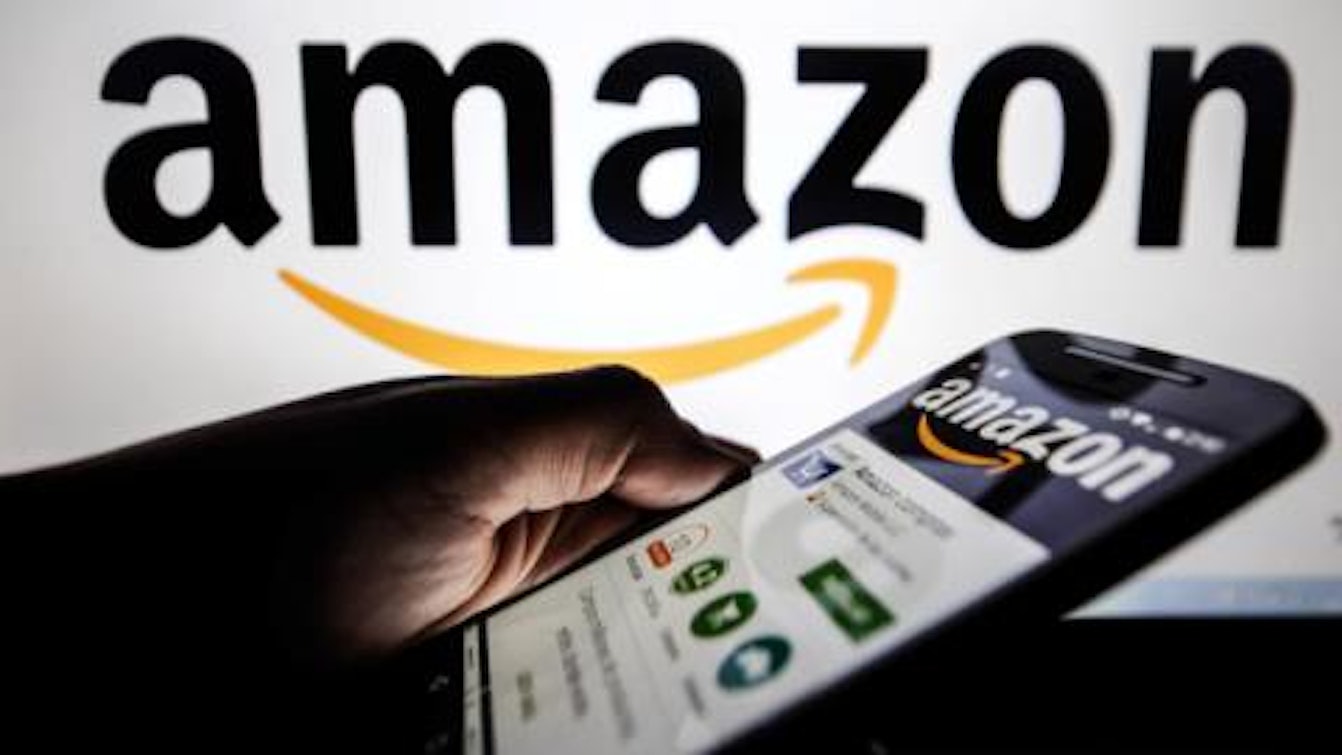Lawrence Hunt is Chairman & Managing Director at addmustard. His talk this afternoon is on the rise of the aggregators and the implications for search marketing. According to the host, Lawrence is a serial businessman and has set up an airline and loveholidays in the past!
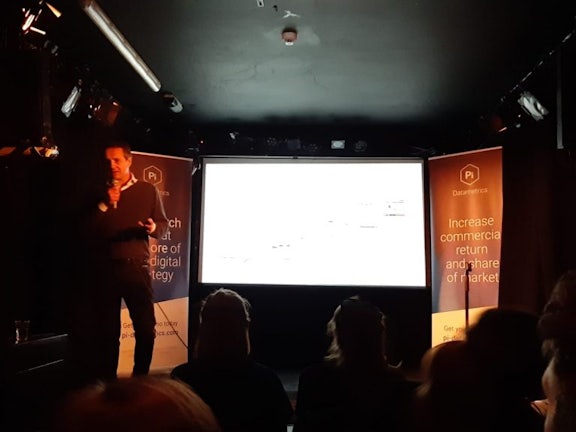
The future of search marketing (a Brexit free presentation)
Last year we saw some big changes in search marketing, says Lawrence. Today his talk will go over the following:
- a brief history of search
- times they are a’ changing
- the rise of aggregation
- run away, hide or front up?
A brief history of search
Search started in the early 90s as part of the US military. As academia become more prolific in the early 90s, web crawlers were developed, which was followed by the development of search engines such as Yahoo, before Google came in during the late 90s and began to dominate the market.
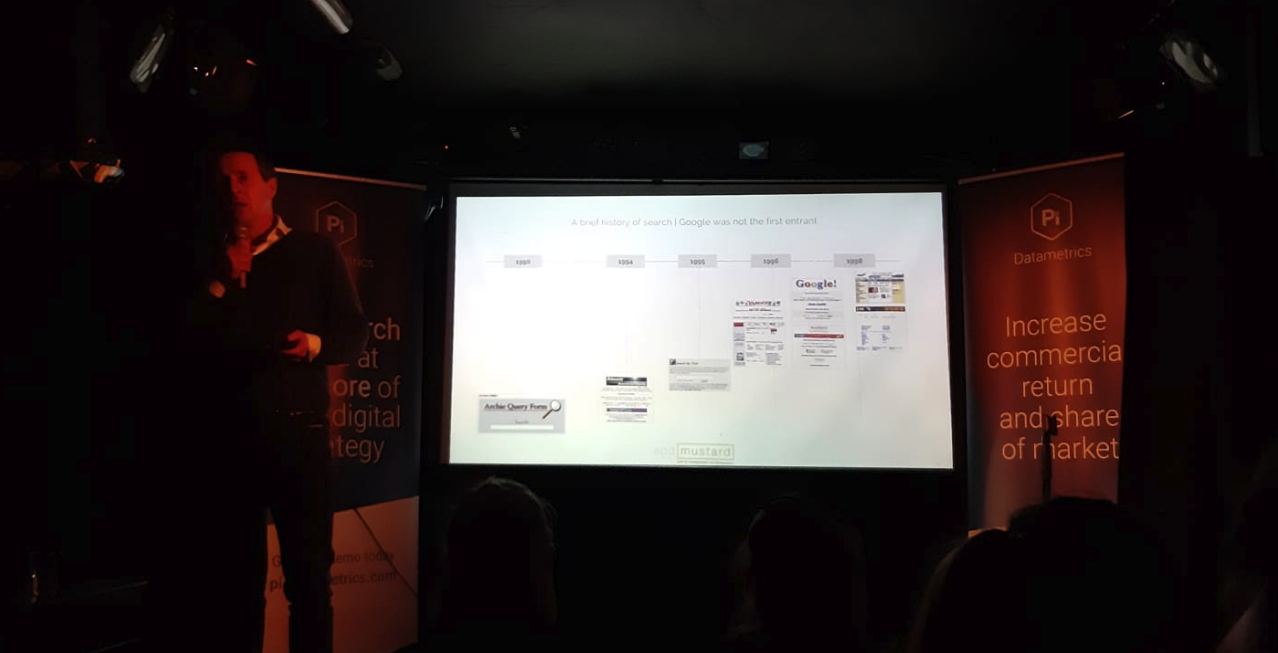
Why did Google dominate?
They had a better algorithm than anyone else. Always had the best user experience and they have always focused on that. According to Lawrence, they have 125 different versions of Google algorithm running at one time.
Just how big are Google?
- 3.5bn global searches a day
- Google share $220bn global digital ad spend which is 50% of the market
- Google share of mobile searches: 83%
- More people Google Facebook than use the platform
What’s the most Googled word? Facebook.
We know its big – but where is it going to go?
Last year we saw a considerable decline in search terms across certain industries, claims Lawrence. What was going on? Google stopped publishing data it’s difficult to see what’s going on.
Google only trades at 18 times it’s profit – no longer perceived by Wall Street as a growth stock
What does this mean?
Search queries are declining, says Lawrence. The volume of queries in most sectors is in decline, supported by data from Merkle and web.com. Alongside this, CPCs are increasing.
What do we believe is happening?
People are using mobile more, but they are not using Google as much on mobile.
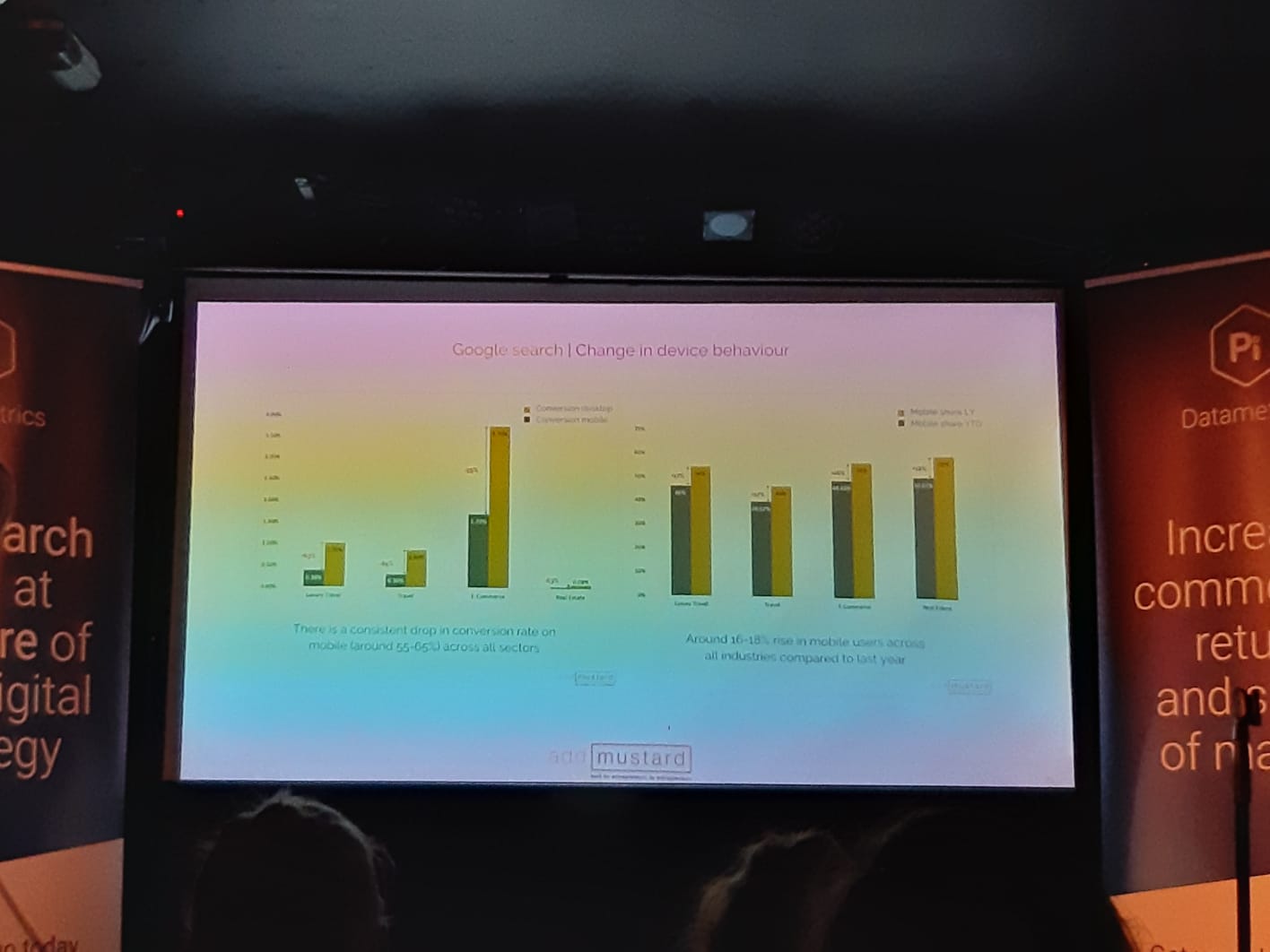
People are using aggregator apps more.
Lets look at Amazon.
What do we know about Amazon?
- they want to be the lowest price on everything
- they are about domination
- they keep CPCs at constant levels despite Google’s CPCs increasing
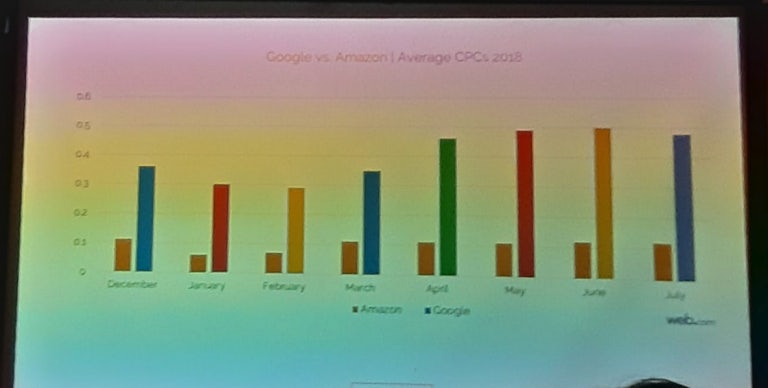
Amazon made 3bn profit from advertising last year and they have 6% of global ad spend. The shift that we are seeing is away from search engines and towards these kind of aggregator apps. This is really important for us to recognise as search marketers.
For search marketers this is a big opportunity, says Lawrence, as it is cheaper and there is better search intent. Amazon isn’t the only aggregator app where we see this happening of course, but it’s currently one of the biggest.
Why Amazon? Conversion ratios are higher.
We believe aggregators will be better hunting ground for brands to dominate market share.
Conclusions: what does this all mean?
- Use of search engines will decline which means less clocks, less customers
- More expensive to advertise on search engines
- We’ll have to find your customers elsewhere
- Google will stop sharing data so will need to rely on more data insight agencies
- The market will become more competitive
- AI tools will become irrelevant as they are based on 20 years worth of CPC data
- Other channels and ad formats will become more important
- Product, quality and price conversion ratio becomes even more critical
- it’ll come back full circle to creativity: you will need to rely on a compelling brand promise
